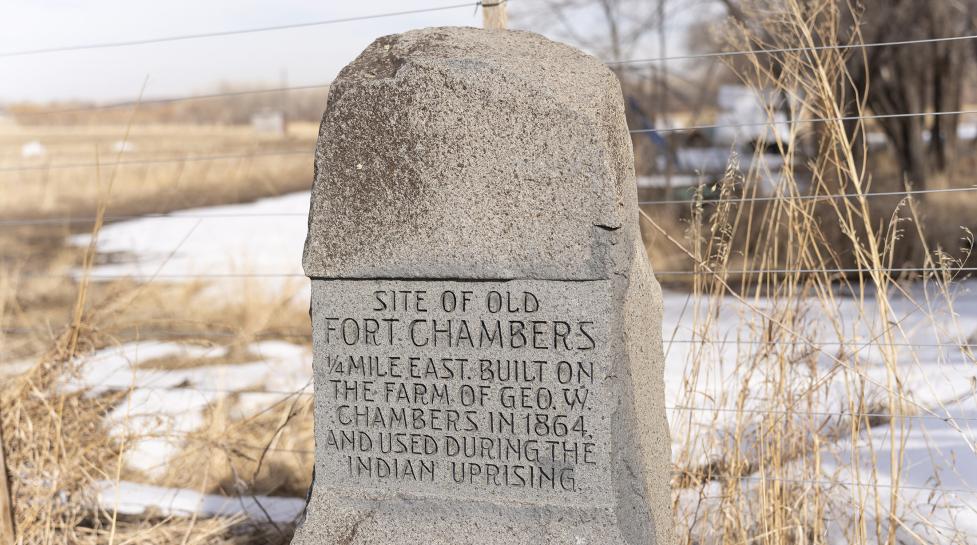The City of Boulder has removed an inaccurate historical marker from city-managed open space that marked the location of Fort Chambers, where Company D of the Third Colorado Cavalry trained before participating in atrocities at the Sand Creek Massacre on Nov. 29, 1864. Learn more about Fort Chambers, Company D and the Sand Creek Massacre.
In 1959, Boulder community members erected the marker along the property boundary of the city’s Fort Chambers/Poor Farm property northeast of Boulder, which the city acquired as open space in 2018. When the marker was erected, community members continued to call the Sand Creek Massacre a “battle” despite first-person accounts and investigations in 1865 that documented atrocities committed by Third Colorado Cavalry soldiers and volunteers.
The city removed the marker – with support from Arapaho and Cheyenne Nation Tribal Representatives – because it inaccurately states that Fort Chambers was used in an “Indian Uprising” in 1864. The city acknowledges it is a false claim because Arapaho and Cheyenne leaders sought peace in the fall of 1864 and Arapaho and Cheyenne Peoples camped at Sand Creek had been promised the protection of the U.S. Army. Exaggerated and false claims of coordinated Indigenous violence helped fan anti-Indigenous hatred in Colorado during the summer and fall of 1864.
The marker – which is viewable online – will be temporarily stored while city staff and representatives from the Cheyenne and Arapaho Tribes, the Northern Arapaho Tribe and the Northern Cheyenne Tribe discuss how best to manage the city’s Fort Chambers/Poor Farm property in the future. As part of those conversations, the city will invite guidance from Tribal Representatives to reinterpret the property and the marker’s history and will seek to understand Arapaho and Cheyenne Tribal Nations’ desired long-term relationship with the land. Learn more about the Fort Chambers/Poor Farm property and the city’s ongoing collaborative effort with Arapaho and Cheyenne Tribal Nations.
City staff appreciates the opportunity to listen and learn from Tribal Representatives and for their ongoing guidance to help the city include Indigenous perspectives into Boulder history. Learn more about ongoing city consultation and engagement efforts with American Indian Tribal Nations.
